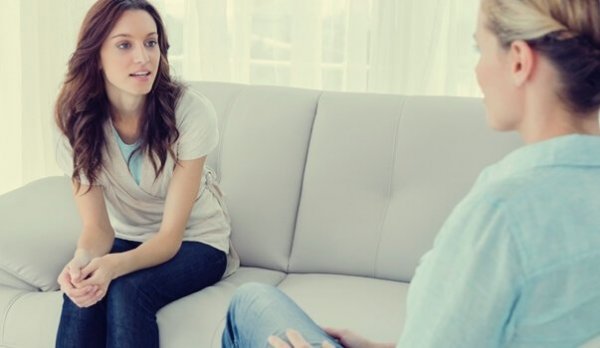Does Your Parents' Relationship Influence How You Choose a Partner?

Does your parents’ relationship really have a big impact (like some people say) on your future relationships? Experience would probably say yes. Science would say that if the parents have a good relationship, then their children will probably have healthy relationships too. It doesn’t necessarily happen the other way around though. However, there are always exceptions.
It’s important to remember that the first example of a romantic relationship and cohabitation that children see is their parents’ or the couple they live with. This is yet another way that a child’s environment can have a major influence on them. What they see affects them and can condition or influence their actions even years down the road.
There are times you’ll hear people say things like: “They’re just kids, they have no idea what’s going on”. But that’s just not true, kids absorb everything. So whatever example they have in front of them will have an influence on the relationships they start in the future.
Your parents’ relationship is present in your own
Your parents’ relationship might be very present in your own, without you even realizing it. It could be, for example, one of the things that always makes you choose a certain type of person who isn’t actually a good fit for you. If your parents’ relationship was full of highs and lows, you might have a tendency to look for someone who gives you stability. But sometimes the person who’s really best for you and your way of life is someone dynamic and spontaneous.
There are also times when children witness major events or become aware of important circumstances. We’re talking about things like distrust, strong dependence, constant cheating, or even abuse. We’re going to give you a real world example. That way you can get an idea of just how much your parents’ relationship can affect how you choose a partner.

Laura hadn’t turned 30 yet. She’d already been in a few relationships, but they were all pretty bad. She never managed to figure out exactly what went wrong, though. In some cases, her partners cheated. In others, they were too attached to their mothers. Laura decided to see a psychologist and tell them her story. The psychologist asked her to tell them about her parents’ relationship.
The relationship between Laura’s parents, and how it affected her
The relationship between Laura’s parents was dramatic. Her father abused and manipulated her mother, on top of cheating on her multiple times… Her mother submitted to him, she wasn’t able to express her feelings, and she was stuck in the relationship because she said she still loved him. However, the truth was that she was emotionally dependent. She felt lonely and abandoned all the time. But not just because of her partner, because of her family too. They were constantly pushing her to stick with him, instead of breaking things off.
Laura’s story only had two possible outcomes: being dependent and finding a committed, loving relationship, or running away from committed relationships and being completely independent. Laura unconsciously went for the first option.
Laura was never a submissive type of person. There’d never been any abuse in her relationships. She did everything she never saw her parents do: she communicated with her partners, made sure they respected her, and never stayed with anyone who tried to push her down… Still, on top of everything we mentioned earlier, her partners were sometimes submissive themselves. Other times, they were liars and didn’t exactly communicate openly.
Laura’s relationship choices were heavily influenced by her experience with her mother. But even though she thought she was building healthy relationships, unlike her parents’, she still couldn’t see the root of the problem. It didn’t take long for her to figure it out.
The problem with Laura’s relationships was that there was a lack of commitment. The people she was with didn’t fully commit to her, or cheated on her, or had a strong attachment to their mothers. What that meant was that she always came in second. It was a lot like what had happened to her mother.
Choosing a partner without all the conditioning
There might be an uncomfortable question nagging at you after hearing Laura’s story. Is it possible to choose a partner without your parents’ relationship conditioning you? The answer is yes, but you have to understand what the issue is to do that.
The best way to become aware of it is to look for any patterns that show up in your relationships. There might be a couple relationships with things in common. But if you’ve had four and had the same problems in all of them, then you should definitely think about what we’re talking about in this article.

If you’ve a hard time finding any patterns in your relationships, seeing a relationship psychologist can be a huge help. They’ll give you tools to boost your self-esteem and work through some of your insecurities. They’ll also help you look at the situation more objectively. That way you can try to enrich your life through the person you choose for yourself. It’s a much better option than covering up your needs or running away from the ghosts of your past.
Above all, a psychologist will help you become more aware of how you start a relationship. This is the real key, this is where most people fall back into old behavior patterns. Are your expectations usually too high? Do you become blind when you love someone? Do you start to get hopeful too soon?
The key to your relationships is how they start. This is where you should really be focusing all your attention on.

Once you’ve analyzed and reflected on these points, you’ll be able to recognize the stumbling block. That way, you’ll be much less likely to trip on it again. If you’ve opened your eyes, you’ll drop a relationship that’s not right for you before it can harm you. At the same time, identifying the conditioning you’ve gotten from the people in your life (not just in relationships) will help you make much better choices for yourself.
This text is provided for informational purposes only and does not replace consultation with a professional. If in doubt, consult your specialist.








